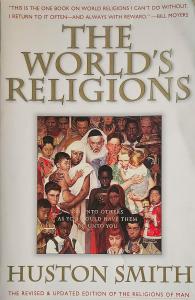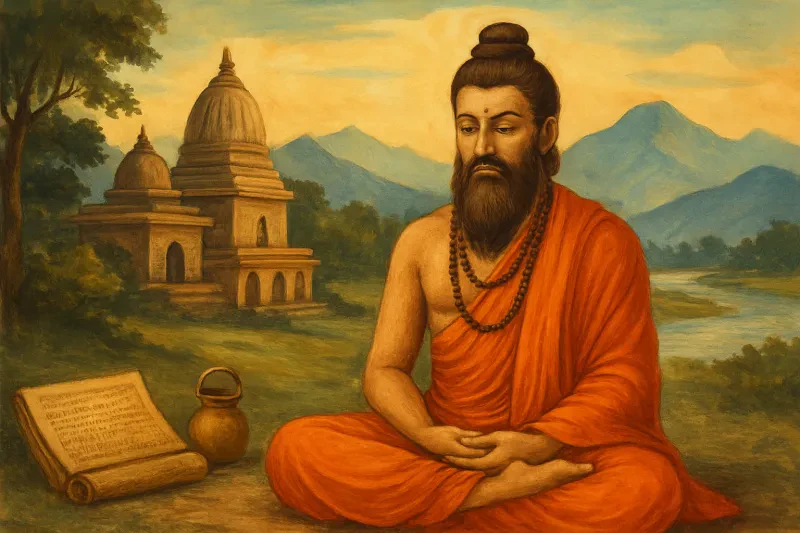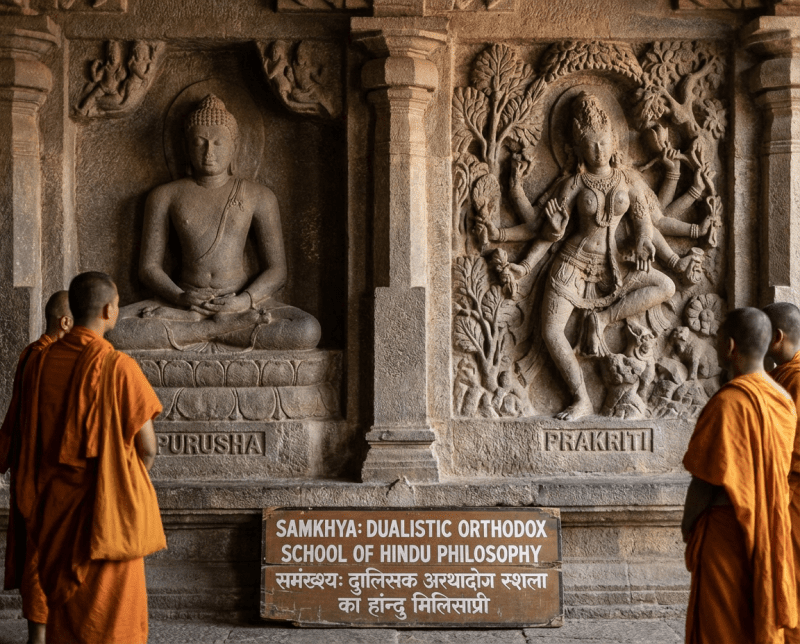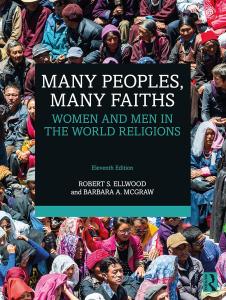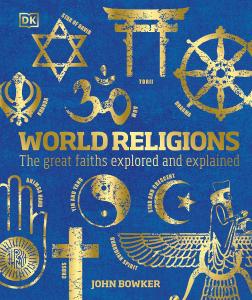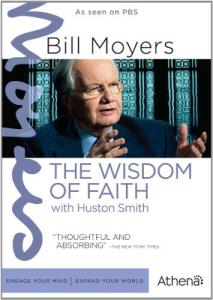“Abrahamic religions” refer to the religions that consider Abraham as their key spiritual ancestor. These faiths, originating in the ancient Near East, have shaped the trajectory of world history, influencing cultures, societies, and philosophies worldwide. Today, the Abrahamic religions comprise some of the world’s largest and most influential faith traditions, with billions of followers. Each has its own doctrines, practices, and interpretations.
What is “Abrahamic?”
At the heart of the Abrahamic religions lies the figure of Abraham, a patriarch who is featured prominently in the sacred texts of Judaism, Christianity, and Islam. Living in the early second millennium BCE, Abraham is celebrated as an exemplar of faith and devotion to God. The word “Abrahamic” emphasizes the common spiritual ancestry and highlights the mutual descent of these faiths through Abraham, despite their evolving differences in doctrine and practices.
Key Similarities
The Abrahamic faiths are different, but they have some core beliefs and traits in common:
• One God: The faith in one, omnipotent, personal God is universal across all Abrahamic religions. Every tradition has its own concept of God. Nevertheless, the belief in the uniqueness and transcendence of God is a fundamental tenet.
• Revelation: All of the religions hold that God has revealed will and guidance to humanity, perhaps via prophets or scriptures or other methods.
• Scripture: Holy scriptures are central, with accounts of Abraham and the patriarchs, as well as commandments, moral lessons, and faith narratives.
• Prophets: Prophets are messengers sent to deliver God’s word to the people. Abraham himself is a prophet in all three of the Abrahamic faiths.
• Moral Codes: All the traditions stress living an ethical/moral life, often as God commanded.
• Historical Interconnectedness: These religions have intertwined histories, with subsequent beliefs frequently building upon or alluding to their predecessors.
The Major Abrahamic Religions
Judaism, Christianity, and Islam are the three main Abrahamic religions. Other, minor faiths descend from Abraham or share a subtext of the Abrahamic tradition.
Judaism
Judaism is considered the oldest of the Abrahamic religions, with its origins tracing back more than three millennia. Abraham, the founding patriarch of the Israelites and a model of faithfulness to God, is a central figure in Jewish history. The central text of Judaism is the Torah, which is part of the Tanakh, or Hebrew Bible.
Fundamental beliefs and characteristics of Judaism are:
• One indivisible God (Yahweh/Adonai).
• Covenant: the belief that God entered into a special covenant with Abraham and his descendants, promising them land and blessings in exchange for their faithfulness.
• Law: observance of the mitzvot, or religious commandments, which include both ethical and ritual law.
• Community: Being Jewish is a familial identity, and it’s one that tends to be grounded in both religion and culture.
Judaism is represented by four main subgroups: Orthodox, Conservative, Reform, and Reconstructionist.
Christianity
Christianity emerged from Judaism in the first century CE, based on the life and teachings of Jesus of Nazareth, whom Christians believe rose from the dead. Christians consider Jesus to be the Messiah (the “Christ”) foretold in the Hebrew scriptures and the incarnate Son of God.
Important attributes of Christianity are
• Trinity: Most Christians believe in a triune God—Father, Jesus Christ, and the Holy Spirit.
• Salvation: At the heart of the Christian faith is the conviction that one finds salvation by believing in Jesus Christ.
• Bible: The Bible in Christianity has the Old Testament, which is part of Judaism, and the New Testament, which includes the account and teachings of Jesus and the early church.
• Practice: Worship, prayer, sacraments (baptism, communion), and a worldview of love and charity.
Christianity, the world’s largest religion, encompasses many denominations, including Catholicism, Eastern Orthodoxy, and Protestantism, each with unique beliefs, liturgies, and practices.
Islam
Islam originated in the 7th century CE on the Arabian Peninsula, with Muhammad regarded as the last prophet of God. Muslims believe that Muhammad received the final and complete revelation from God, as recorded in the Qur’an.
Distinctives of Islam are:
• Monotheism: Firm faith in the Unity of God (Allah in Arabic)
• Prophethood: Muslims affirm the prophethood of Abraham and numerous other figures from Jewish and Christian scripture, and believe Muhammad is the final prophet (the “Seal of the Prophets”).
• Scripture: While the Qur’an is Islam’s holy book, Muslims believe in previous scriptures, such as the Torah and the Gospels, but that the Qur’an supersedes them.
• Five Pillars: Fundamental acts of worship and obligation, such as faith, prayer, fasting, almsgiving, and pilgrimage.
Islam has over a billion adherents around the world and has its main branches of Sunni and Shia, along with many other sub-sects.
Other Abrahamic Faiths
Outside of Judaism, Christianity, and Islam, some of the smaller religions are occasionally classified as Abrahamic because they descend from, include, or reference Abraham or his descendants in their origins, scriptures, or theology.
• Baha’i Faith: Established in the 19th century in Persia, which is now Iran, the Baha’i Faith views itself as the most recent in a succession of revelations from the same God whom Jews, Christians, and Muslims worship. The Baha’i Faith considers Abraham, Moses, Jesus, Muhammad, and other religious leaders manifestations of God.
• Samaritanism: Samaritans are a tiny ethno-religious group following a tradition very similar to Judaism. They descend from the ancient Israelites and consider Abraham a patriarch.
• Druze: The Druze religion, which emerged in the 11th-century Middle East, shares elements with Islam and other Abrahamic religions but is separate in theology and practice. Druze respect Abraham and other prophets.
• Rastafarianism: Originating in Jamaica in the 1930s, Rastafarianism adopts Christian and Jewish concepts, acknowledging Biblical tales and characters from the Hebrew Bible such as Abraham.
• Others: Smaller sects and movements, including the Mandaeans, some Gnostic and Messianic groups, which are sometimes grouped with Abrahamic religions because of common beliefs or shared figures.
Disagreements and Disputes
Although having a common origin, Abrahamic religions exhibit significant theological, ritual, and cultural differences. These fundamental differences extend to beliefs about the essence and identity of God, the position of Jesus, scriptural interpretation, and the observance of religious law. Over the centuries, these distinctions have occasionally caused friction, but there have also been periods of harmony and exchange.
Summary
Judaism, Christianity, Islam, and their smaller cousins—the Abrahamic religions—are a significant spiritual and cultural tradition that continues to influence billions of lives today. Their common respect for Abraham and some basic beliefs lay the foundation. Yet, their individual histories, teachings, and practices guarantee a faith patchwork. To comprehend these faiths and their adherents is to appreciate both their uniqueness and their impact on the larger human story.
The World's Religions: Our Great Wisdom Traditions
by Huston Smith
Product information
Product Review Score
4.98 out of 5 stars
36 reviews
